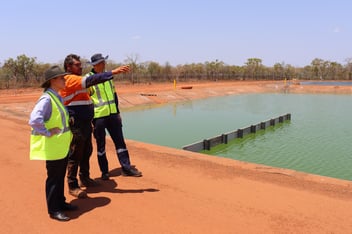Remote WA community takes control of water quality with innovative filter system
In response to concerns that the water quality in Western Australia’s Pandanus Park is unsafe for infants and pregnant women due to high nitrate levels, the Yaru Foundation has supplied a water filtration system to the community free of charge.
Housed in a small shipping container, the station filters the community's bore water to deliver clean and safe drinking water.
The not-for-profit organisation took action following public outcry by community leaders at the unsafe levels of nitrate in the water, which is believed to be responsible for a range of health defects in children from the community.
Community CEO Patricia Riley told ABC Online that the drinking water was putting the lives of their children at risk.
"[The tap water] tastes like sewerage, you can taste salt. It makes you dehydrated. It's got an odd smell even in the shower. It's like you're suffocating in the shower. It's a life-threatening situation we're in, drinking the nitrates,” she said.
Riley said her community is very grateful for the filtration system donated by the Yaru Foundation.
"We are lucky to have it. It's really affecting us, but it's good we've got someone from another state coming to support us. We would appreciate if our own government had actually done this,” she said.
The Department of Communities is responsible for water in 82 remote Aboriginal communities, and has signed a Memorandum of Understanding with the Yaru Foundation to continue monitoring the water quality.
Yaru co-founder Shaun Martin said the Pandanus community's water quality issues offered an opportunity for the organisation to install its first filtration station.
"It's not rocket science. The community have taken ownership and that's very important. It gives them autonomy … we service it but they look after it,” Martin said.
"We've highlighted at least 14 communities that need this in the Kimberley and Gascoyne. Some of these jobs are easier to do, for foundations [such as us]. There's a little less red tape, maybe, and you can get more done outside the system."

